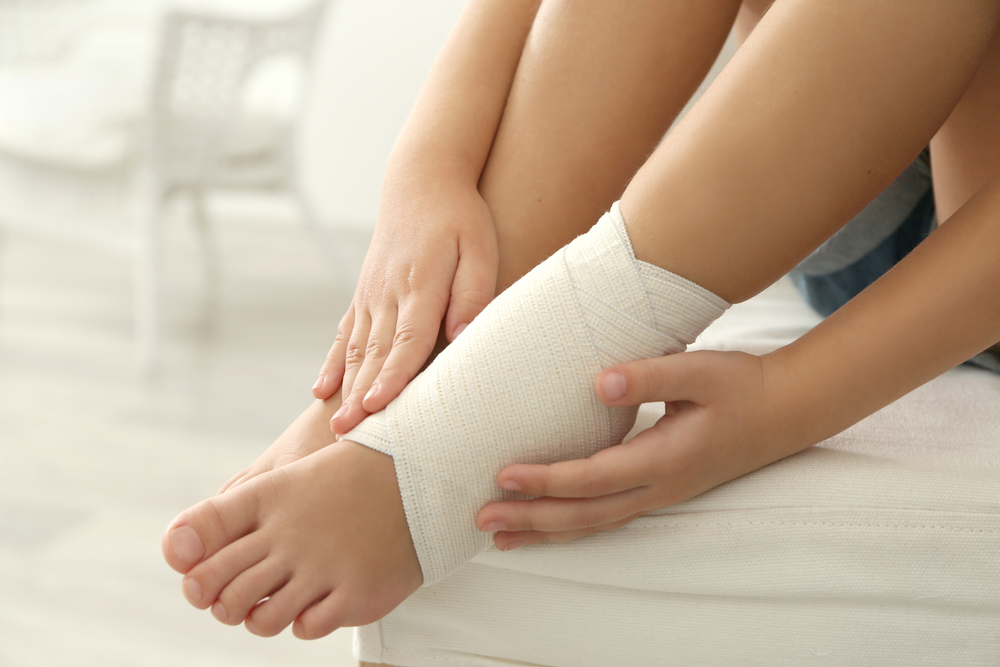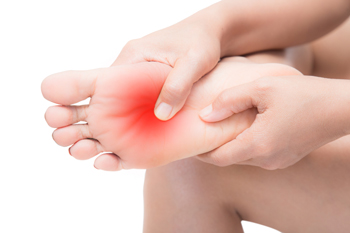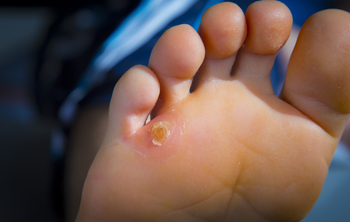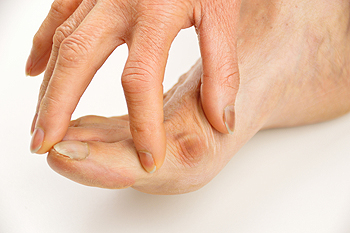 An ankle sprain can be the result of stretched or torn ligaments from suddenly twisting the ankle. As the ankle rolls outward, the foot turns inward, and this can cause the inside of the ankle to become damaged. The symptoms that many patients experience can include immediate bruising, swelling, and difficulty walking. After a proper diagnosis is made, which generally involves having an X-ray taken, treatment can begin. This typically begins by wrapping the affected ankle in an elastic bandage, as this is helpful in providing the necessary support to the ankle during the healing process. Additionally, it is beneficial to elevate the sprained ankle, which can alleviate some of the swelling. If you have sprained your ankle, it is strongly suggested that you consult with a podiatrist who can diagnose and treat this injury.
An ankle sprain can be the result of stretched or torn ligaments from suddenly twisting the ankle. As the ankle rolls outward, the foot turns inward, and this can cause the inside of the ankle to become damaged. The symptoms that many patients experience can include immediate bruising, swelling, and difficulty walking. After a proper diagnosis is made, which generally involves having an X-ray taken, treatment can begin. This typically begins by wrapping the affected ankle in an elastic bandage, as this is helpful in providing the necessary support to the ankle during the healing process. Additionally, it is beneficial to elevate the sprained ankle, which can alleviate some of the swelling. If you have sprained your ankle, it is strongly suggested that you consult with a podiatrist who can diagnose and treat this injury.
Ankle sprains are common but need immediate attention. If you need your feet checked, contact one of our podiatrists from Foot Health Center of Merrimack Valley. Our doctors can provide the care you need to keep you pain-free and on your feet.
How Does an Ankle Sprain Occur?
Ankle sprains take place when the ligaments in your ankle are torn or stretched beyond their limits. There are multiple ways that the ankle can become injured, including twisting or rolling over onto your ankle, putting undue stress on it, or causing trauma to the ankle itself.
What Are the Symptoms?
- Mild to moderate bruising
- Limited mobility
- Swelling
- Discoloration of the skin (depending on severity)
Preventing a Sprain
- Wearing appropriate shoes for the occasion
- Stretching before exercises and sports
- Knowing your limits
Treatment of a Sprain
Treatment of a sprain depends on the severity. Many times, people are told to rest and remain off their feet completely, while others are given an air cast. If the sprain is very severe, surgery may be required.
If you have suffered an ankle sprain previously, you may want to consider additional support such as a brace and regular exercises to strengthen the ankle.
If you have any questions please feel free to contact one of our offices located in North Andover, and Tewksbury, MA . We offer the newest diagnostic and treatment technologies for all your foot and ankle needs.

 Heel pain
Heel pain












